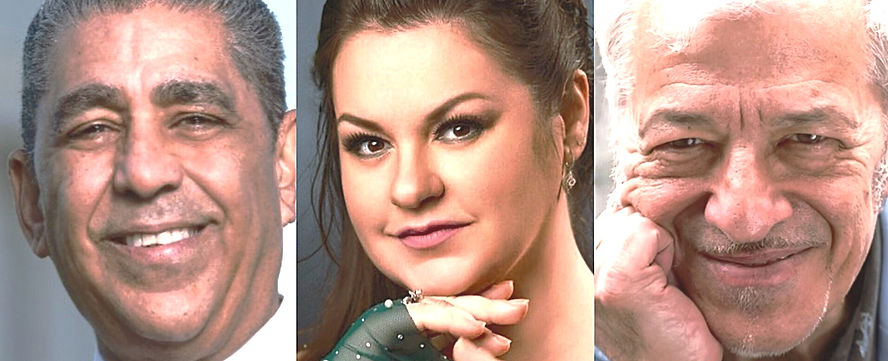The Zay Initiative on Strengthening Cultural Dialogue with Fashion Historian Cassidy Zachary
- Jan 23, 2021
- 3 min read
Updated: May 1, 2021
Written by: Nikoleta Morales
The Zay Initiative returned in January for their first talk of the year. The conversation was moderated by Cassidy Zachary, Fashion Historian and co-host of iHeart Radio’s “Dressed Podcast.” The founder of the Zay Initiative, Dr. Reem El Mutwalli, spoke to Zachary and the audience about the work that she does and how it benefits the Arab culture and heritage.
“I am continuously inspired by the work of Dr. Reem..the work to empower Arab women and her encouragement of cross cultural dialogues and relationships,” said Zachary.
The aim of the Zay Initiative is to expand the definition of what fashion is. The collection consists of Arad dresses and garments that celebrate the human narrative. By preserving the clothes and showing them through a digital platform, the Zay Initiative empowers Arab women while bringing their untold stories to life.
“The Arab world is a cultural trade rather than racial one full of rich countries, religions and groups, including Muslims, Christians, Jews and other minorities,” said Dr. Reem. “We collect the tangible and narrate the intangible.”
The Zay Initiative focuses on growing the collection from examples across the Arab world, such as the Ottoman Empire, Turkey, China, Iran, India and even Japan. The idea is to tell stories through Arabic clothing.
In addition to her garment collection, Dr. Reem has published a two-part book, “Sultani,” featuring her clothes collection and work in English and Arabic. It took her eight years to produce it. It is the first documentation of dresses in the United Arab Emirates.
“The Arab world doesn't exist in a vacuum and consists of over 20 countries. It shares traditions with neighbouring and trading countries. The Zay Initiatives looks to sustain traditional crafts by collaborating with designers to sustain traditional crafts and promote a circular economy,” said Dr. Reem El Mutwalli.
The Zay Initiative has a digital archive of the collection on their website. It is the first digital glossary of Arabic terms since 1845.
It is a beautiful way to connect between cultures, to create a cultural bridge from which we can understand each other.
“One of the inevitable byproducts of what you do is challenging myths and stereotypes of Arab women and you are doing it in this beautiful celebratory way,” said Zachary.
"One of the important misconceptions it breaks is that all women are dressed in black, as not all Arab women are dressed in black. Look at how colorful their clothing is,” said Dr. Reem El Mutwalli. Zachary agreed that it's important that the clothes are valued not just for heritage and material value, but also for their cultural and symbolic value.
One of the Zay Initiative’s commitments is to reach the community and empower them. One way they do that is through their scholarship program, which encourages women who have been away from the workforce and need work to apply.
“We believe the presence of men is imperative. We collect men and women's attire and document them equally,” said Dr. Reem El Mutwalli. The Zay Initiative chose 20 women to wear clothing from their collection to tell the stories of the women who wore them before. It was meant to inspire women in their modern culture and work.
The UAE is leading in opening the paths to its female members to participate in civic and governing positions. Arab women are participating in developing their Arab culture mentioned Mutwalli.
She believes that diversity enriches us. People who have lived on this land for thousands of years must have interacted and influenced each other. Any form of interaction is healthy and produces creativity that one can learn from and work with,” said Dr. Reem. “You have to have respect for other cultures and understand other cultures. This is the core of the Zay initiative.”
For more information on the Zay Initiative, visit: thezay.org.


































